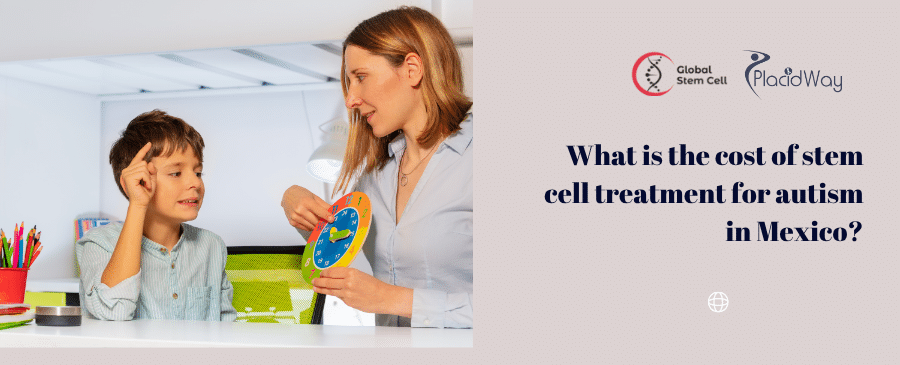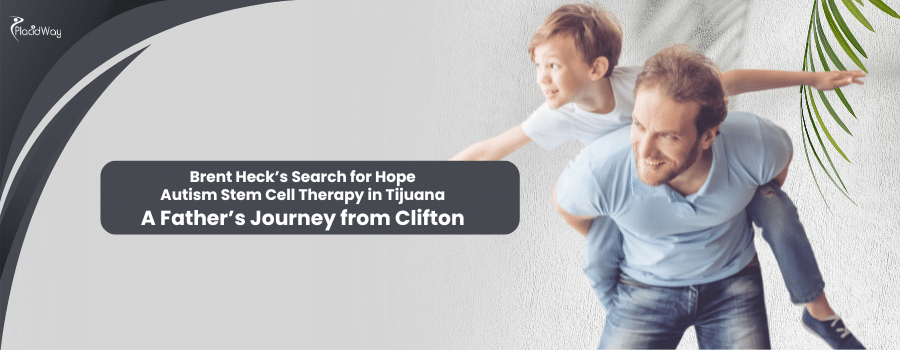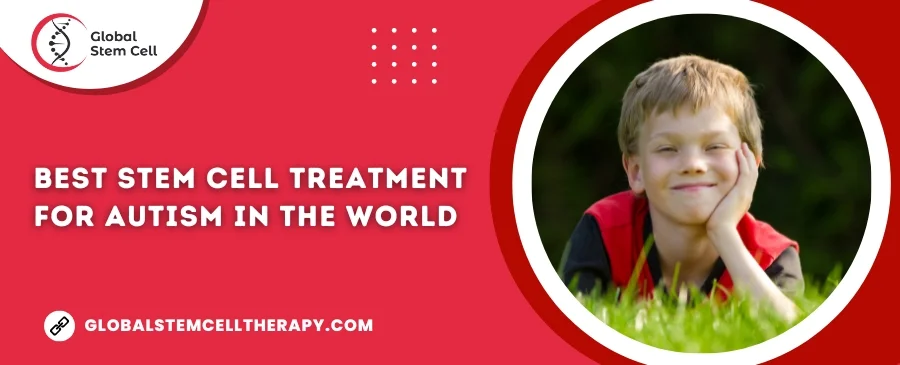
Stem cell treatment is giving new hope to families dealing with autism. This therapy is changing how we think about autism, helping people live happier, healthier lives. In this guide, we’ll learn about the newest treatments around the world that are helping people with autism and their families.
Could Stem Cells Help Your Child with Autism?
Clinics all over the world are using stem cells to help with autism symptoms like trouble talking, making friends, and repetitive behaviors. This treatment aims to improve how the brain works, making life better for people with autism and their families.
Table of Content
Understanding Autism
Autism spectrum disorder (ASD) affects how people talk, interact, and behave. It is called a “spectrum” because people with autism can have very different strengths and challenges. We don’t know all the reasons why autism happens, but it seems to be a mix of genes, the environment, and brain factors.
Causes of Autism
- Genetic Factors: Genes play a big part in autism. Some changes in genes can make it more likely for someone to have autism.
- Environmental Factors: Things like infections during pregnancy or being around certain chemicals might be linked to autism.
- Brain Development: Differences in how the brain is built and how parts of the brain connect to each other may also be a cause of autism.
Symptoms of Autism
- Social Challenges: Trouble understanding social cues, not making eye contact, and finding it hard to make friends.
- Communication Difficulties: Late speech, trouble using gestures, or repeating words or phrases.
- Repetitive Behaviors: Doing the same things over and over, being very focused on certain topics, and sticking to routines.
- Sensory Sensitivities: Being more or less sensitive to things like lights, sounds, textures, or tastes.
- Restricted Interests: Very strong interest in specific topics or activities, not being interested in other things.
Diagnosis of Autism
- Early Screening: Doctors check for early signs of autism during regular checkups for young children.
- Multidisciplinary Assessment: A team of doctors, therapists, and specialists looks at the child’s behavior and development to diagnose autism.
- Parental Input: Parents’ thoughts about their child’s behavior are important for the diagnosis.
How Stem Cell Treatment Can Help People with Autism?
Stem cell therapy is a new way to help people with autism. It aims to make symptoms easier to manage and improve overall health. Here’s how stem cell therapy can help people with autism:
- Reducing Inflammation in the Brain Stem cells, like mesenchymal stem cells (MSCs), can help reduce inflammation in the brain, making it a healthier place for learning and growth.
- Helping the Brain Grow and Change Stem cells can help the brain form new connections. This could help people with autism get better at talking, understanding others, and learning.
- Repairing Damaged Cells Stem cells can turn into different types of cells, like brain cells. They might be able to replace damaged cells in the brain, making it work better.
- Improving Nerve Connections Stem cells can help nerve cells connect better, which could lead to improvements in social skills, communication, and learning.
- Helping the Gut-Brain Connection Many people with autism have stomach problems, and scientists think the gut and brain are connected. Stem cells might help improve gut health, which could also help mood and behavior.
Best Stem Cell Therapy Clinics for Autism in the World
When it comes to advanced treatments for autism, several clinics around the world stand out for their pioneering work in stem cell therapy.
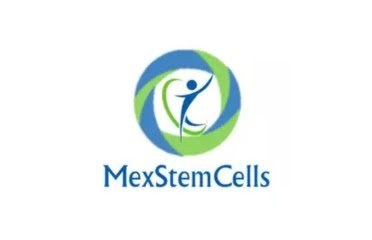
MexStemCells in Mexico City, Mexico
MexStemCells is one of the best clinics in Mexico for stem cell therapy. They use special stem cells to help with autism symptoms like trouble with talking and making friends. The clinic has doctors who make special treatment plans just for each patient to get the best results.

Stem Health in Guadalajara, Mexico
Stem Health in Guadalajara, Mexico, is known for its team approach to helping people with autism. They have doctors, therapists, and healthcare workers who work together to make treatment plans for each person.

Alevy in Bogotá, Colombia
Alevy is a top clinic in Bogotá, Colombia, that uses new treatments for autism. They use stem cell therapy along with other therapies like physical, occupational, and behavior therapy.

Vega Stem Cell Clinic in Bangkok, Thailand
Vega Stem Cell Clinic in Bangkok, Thailand, is a well-known place for stem cell therapy for autism. The clinic uses both modern medicine and traditional treatments to help people with autism.
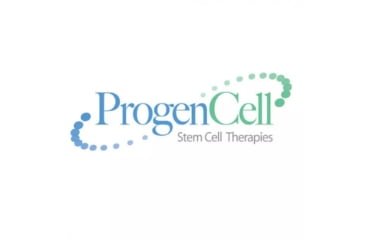
ProgenCell in Tijuana, Mexico
ProgenCell in Tijuana, Mexico, is one of the best clinics for stem cell therapy for autism. They use advanced stem cell treatments to help with autism symptoms like repeating behaviors, trouble with social skills, and communication.
Stem Cell Treatment for Autism Cost
| Country | Average Cost in USD |
|---|---|
| United States | $30,000 |
| Mexico | $10,000 |
| India | $8,500 |
| Thailand | $14,000 |
| Austria | $12,000 |
Stem Cell Treatment for Autism Success Stories
FAQs about Stem Cell Treatment for Autism
How does stem cell therapy work for autism?
Stem cells can turn into different types of cells in the body. For autism, these cells can help reduce inflammation, fix damaged brain tissues, and improve how the immune system works. This can lead to better behavior, communication, and social skills.
What types of stem cells are used in autism treatment?
The most common stem cells used for autism treatment are mesenchymal stem cells (MSCs). These come from bone marrow, fat (adipose tissue), or umbilical cord tissue. They are helpful because they can reduce inflammation and help the immune system.
Is stem cell therapy for autism safe?
Stem cell therapy is usually safe, but it is important to choose a clinic with experienced doctors. You should also talk to your doctor about any risks or side effects. Research is still being done to learn more about the safety and success of this therapy.
What are the benefits of stem cell therapy for autism?
Stem cell therapy may help improve how people with autism behave, communicate, and interact with others. Some people also see better thinking skills and fewer problems like anxiety or stomach issues.
How long does it take to see results from stem cell therapy for autism?
The time it takes to see results can be different for everyone. Some people may see improvements in a few weeks or months, while others may take longer. It is important to have realistic expectations and stay in touch with your healthcare provider.
Are there any side effects of stem cell therapy for autism?
Side effects are usually small, like some pain where the shot is given, a fever, or a headache. Serious problems are rare. Patients should be watched closely by their doctor during treatment.
How much does stem cell therapy for autism cost?
Stem cell therapy for autism can cost between $5,000 and $20,000 or more. The price depends on the clinic and treatment plan. It is a good idea to talk about the costs with the clinic and ask if they have payment plans.
Is stem cell therapy for autism covered by insurance?
Most insurance companies do not cover stem cell therapy for autism because it is still considered experimental. You should check with your insurance company to understand your coverage and what you might need to pay.
How do I choose the right clinic for stem cell therapy for autism?
To choose the right clinic, look at the clinic’s reputation, how experienced the doctors are, the types of stem cells they use, and their treatment methods. Reading reviews from other patients and talking to healthcare professionals can also help you make a good decision.
Contact us to get a consultation with a top stem cell treatment center and start your journey to a better life for you or your loved one with autism. These clinics are some of the best places for stem cell therapy to help with autism, and they all work hard to improve the quality of life for people with autism.




